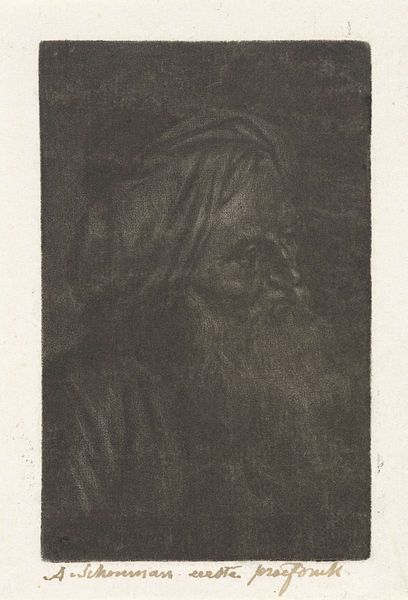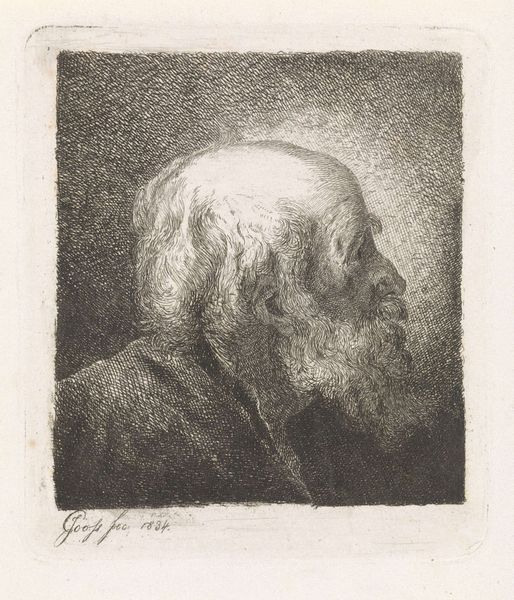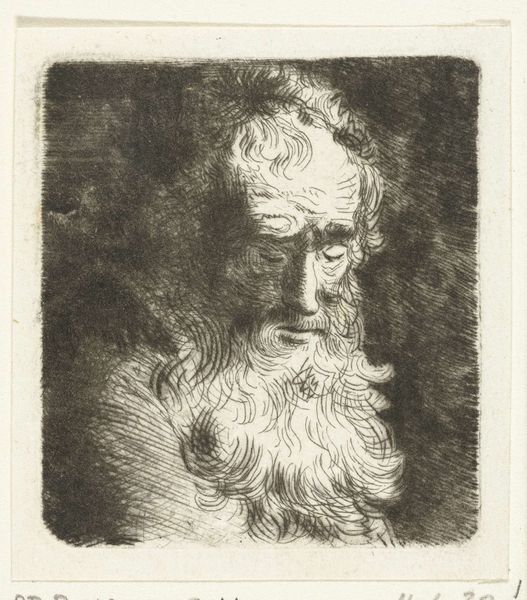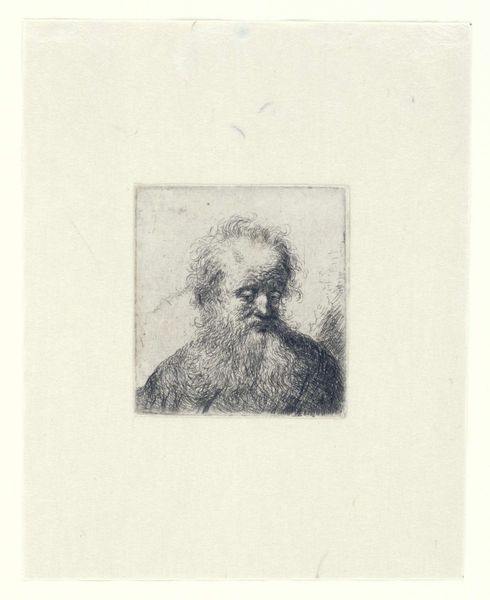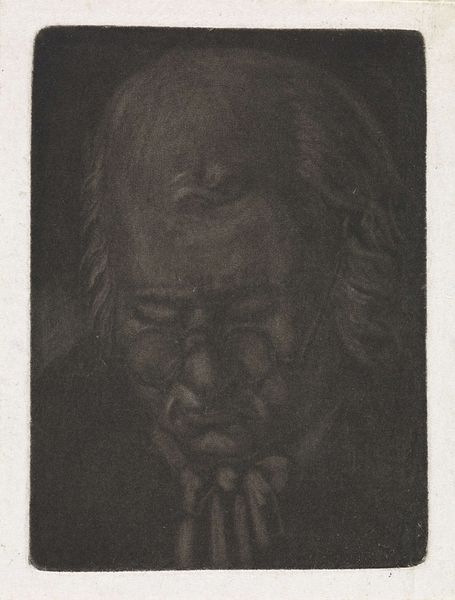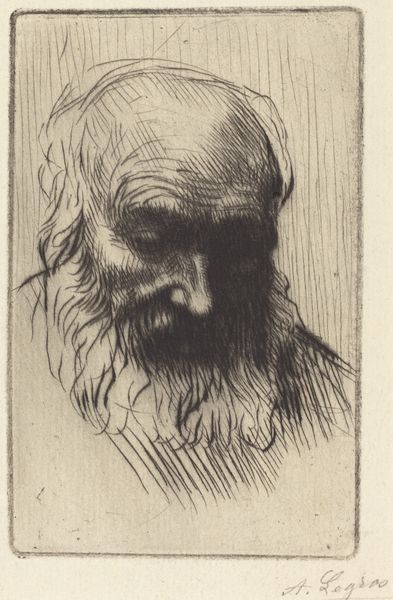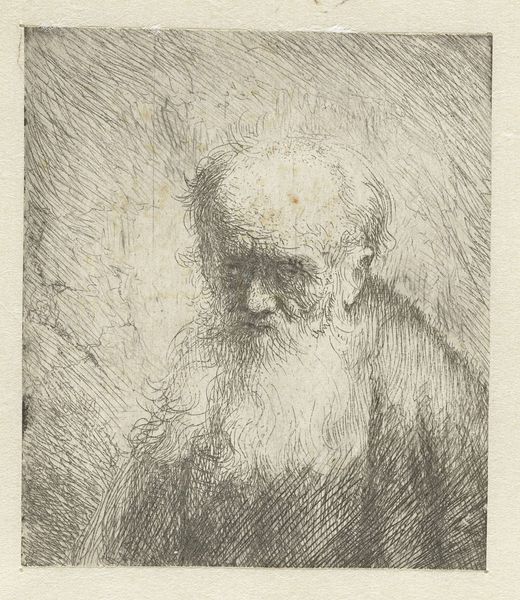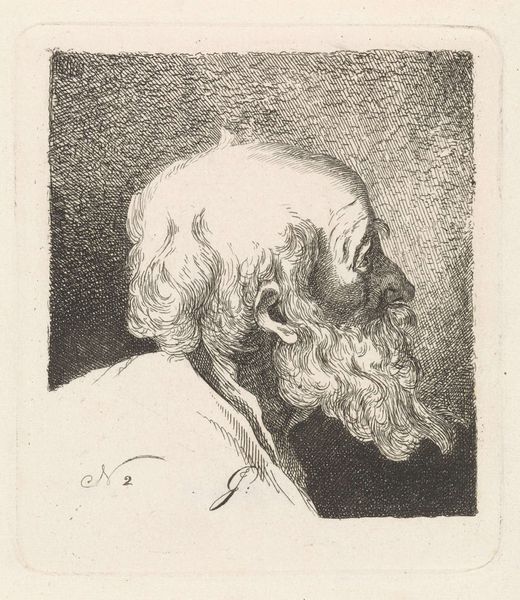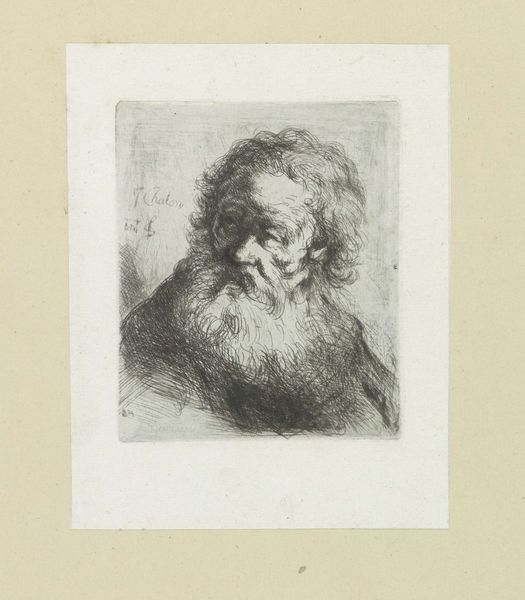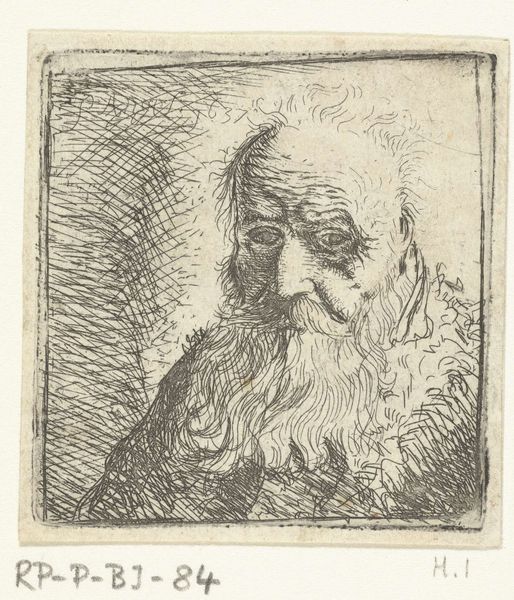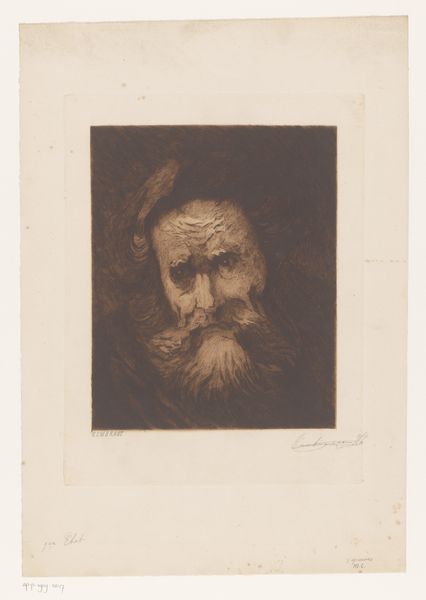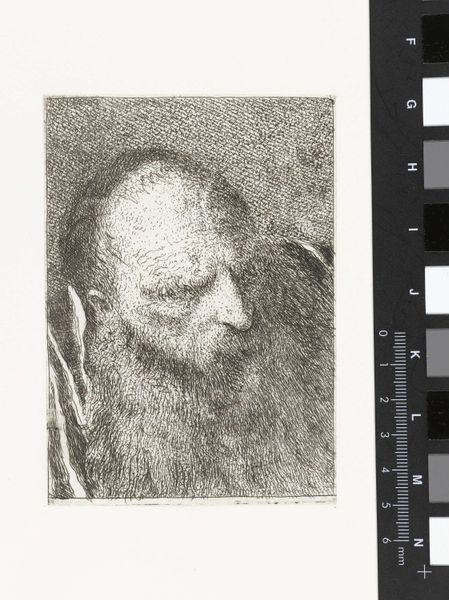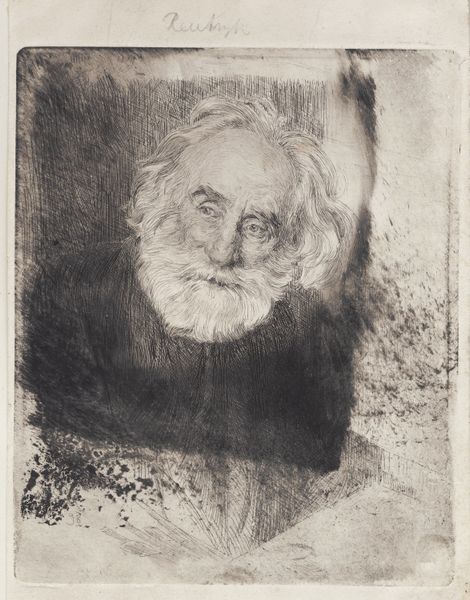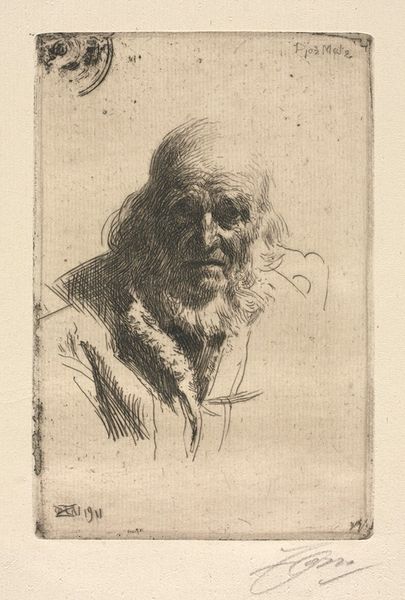
drawing, graphite
#
portrait
#
pencil drawn
#
drawing
#
pencil sketch
#
charcoal drawing
#
charcoal art
#
pencil drawing
#
graphite
#
pencil work
#
modernism
#
realism
#
monochrome
Dimensions: height 102 mm, width 70 mm
Copyright: Rijks Museum: Open Domain
Editor: Elias Stark's "Gezicht van een oude man," which roughly translates to "Face of an old man," from around the turn of the century, 1859-1933. The piece uses graphite and other drawing media. There's an incredible ethereal quality to the portrait, like the figure is emerging from the darkness. How do you interpret this work? Curator: Well, looking at Stark's portrait, it's impossible not to consider the historical context surrounding representations of age. Think about the late 19th and early 20th centuries— what was the prevailing view of aging individuals, particularly within institutional settings like museums and galleries? The portrayal seems to pull away from idealizing age, instead perhaps embracing a stark realism, showing maybe hardship. Does this contrast make you consider any contemporary socio-political issues? Editor: I see what you mean. It does make me think about how different eras treat their elderly. But also I keep returning to how the artwork makes the sitter disappear into the darkness. The figure is so lost in the black void, fading, I wonder about mortality. Curator: That feeling of fading you mentioned connects directly to a visual tradition. The artistic choices surrounding portraiture were rarely innocent. This specific method of representation had certain social implications about aging, loss of visibility, or social importance. Was he deemed somehow 'less worthy' of artistic study and presentation? Editor: Wow, I had not thought about it in terms of social visibility. Thanks for the insight; that lens completely shifted my initial reading. Curator: It’s often the unsaid elements that speak the loudest. This was a fruitful exploration into the nuances embedded within "Gezicht van een oude man.” Editor: Definitely, I appreciate understanding how institutions influence artistic interpretation.
Comments
No comments
Be the first to comment and join the conversation on the ultimate creative platform.
